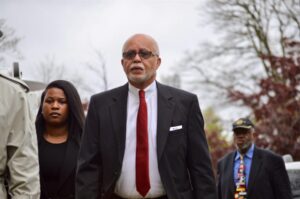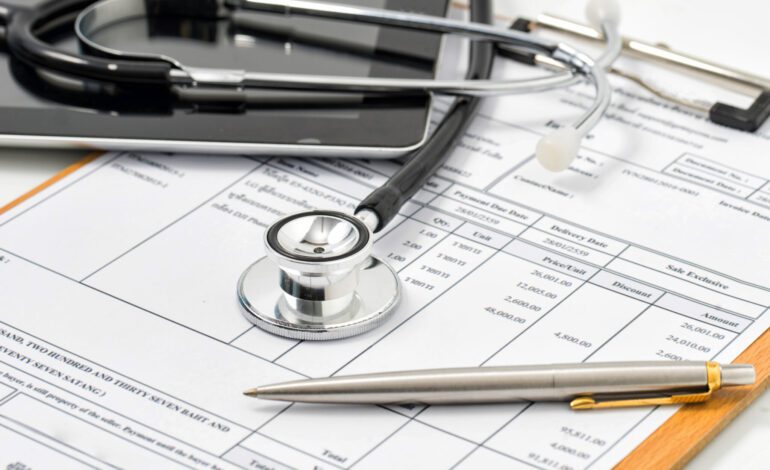DETROIT – Wayne County Executive Warren C. Evans has announced a new program to provide critical relief from medical debt and the financial hardship it has caused for up to 300,000 Wayne County residents. The county has teamed up with RIP Medical Debt, a national non-profit organization that will work with providers like hospitals, health systems and physicians groups to relieve debt on behalf of its residents. According to projections, up to $700 million in medical debt could be eliminated for these residents.
I am pleased to have the opportunity to implement a program that could help lift the burden of medical debt that has weighed so heavily on some of our residents. – Warren Evans, Wayne County Executive
“I am pleased to have the opportunity to implement a program that could help lift the burden of medical debt that has weighed so heavily on some of our residents,” Evans said. “Many cannot afford to pay the growing medical bills they face. It could help them gain financial stability and eliminate the stress of trying to figure out how to pay overwhelming hospital bills.”
To qualify for the program, residents with medical debt must earn at or below four times the federal poverty level or have debts that are 5 percent or more of their annual income. Funding is made possible, in part, by the American Rescue Plan Act (ARPA). Residents don’t need to apply for the program. RIP identifies individuals who meet the criteria and negotiates with health centers on their behalf to buy the debt in batches. Once this is complete, RIP sends them a letter indicating that their debt has been eliminated.

Wayne County Executive Warren Evans. Photo by Ken Coleman
Medical debt is the leading cause of bankruptcies in the United States, with more than 2 out of 5 American adults having some. U.S. Census Bureau data indicates that nearly a quarter of households with children have unpaid health care bills, compared with 17 percent of those without children.
In fact, a 2022 report by the Consumer Financial Protection Bureau found that a one-time or short-term expense such as a hospital stay causes about two-thirds of all medical debt.
“Nobody takes on medical debt willingly,” said Dr. Abdul El-Sayed, director of Wayne County’s Department of Health, Human and Veterans Services. “They do so because illness or injury drove them to it. For many Wayne County residents, that destroyed their credit, leading to mortgages denied and opportunities missed. With this courageous step, Wayne County is stepping in to end that.”
“Medical debt can be crushing, especially once it passes to collection agencies,” said Wayne County Commission Chair Alisha Bell. “At the same time, health care providers may never receive any payment for their services. This is a reasonable solution with benefits for everyone.”
“We’re excited to be standing up our program with Wayne County to relieve the local community of burdensome medical debt,” said RIP Medical Debt CEO and President Allison Sesso. “This collaboration is poised to help those least able to repay their medical debts and relieve a major obstacle to financial and mental well-being. As we secure medical debts to be erased there will be announcements to the community that debt relief letters are imminent.”
In order to qualify for medical debt relief, a person must have medical debt greater than 5 percent of their annual income, or earn an annual income below 400 percent of the federal poverty line ($60,240 for a single person). The income threshold is about double for a family of four.
How does the program work?
According to the organization’s website, RIP Medical Debt can relieve $10,000 of medical debt for a whopping $100.
The value of an outstanding medical bill is substantially less once it’s sent to collections. Instead of selling it to a debt collector, the company negotiates with healthcare providers before buying the debt for pennies on the dollar. Once outstanding bills are bundled and purchased, the organization writes off the balance and sends a letter to the patient notifying them of the resolved debt.
Rather than requiring that each individual submit an application to have their debt erased, the nonprofit works directly with healthcare providers to negotiate the outstanding balance. Income and debt information is verified through a partnership with TransUnion which allows them to verify income, liabilities and assets.
RIP Medical Debt has partnered with other local governments in the last few years for the same purpose. Cook County, Illinois was the first to partner with the organization. Last fall, Oakland County announced it would use $2 million in American Rescue Plan Act funding to partner with the same nonprofit to wipe out $200 million of medical debt for up to 80,000 of its residents. Kalamazoo County also earmarked $500,000 in its 2024 budget to erase $89 million for its residents.






Leave a Reply